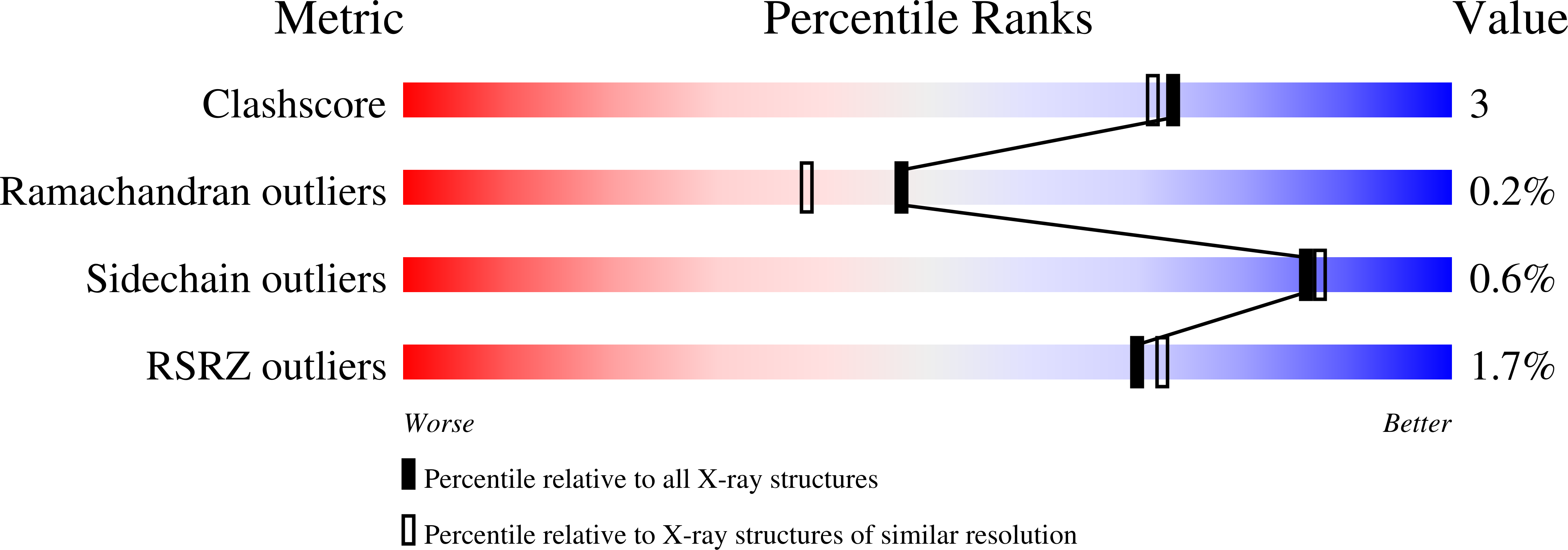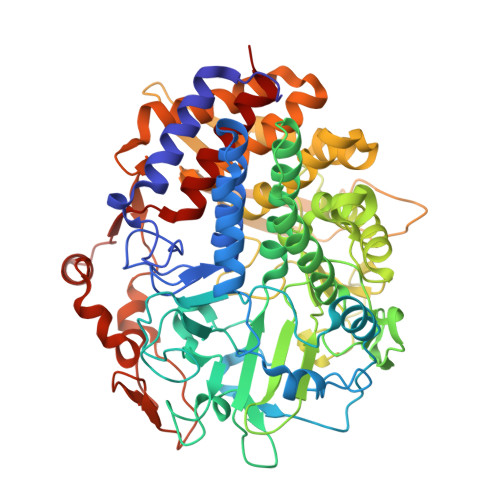Structures of mutants of cellulase Cel48F of Clostridium cellulolyticum in complex with long hemithiocellooligosaccharides give rise to a new view of the substrate pathway during processive action
Parsiegla, G., Reverbel, C., Tardif, C., Driguez, H., Haser, R.(2008) J Mol Biol 375: 499-510
- PubMed: 18035374
- DOI: https://doi.org/10.1016/j.jmb.2007.10.039
- Primary Citation of Related Structures:
1G9G, 1G9J, 2QNO - PubMed Abstract:
An efficient breakdown of lignocellulosic biomass is a prerequisite for the production of second-generation biofuels. Cellulases are key enzymes in this process. We crystallized complexes between hemithio-cello-deca and dodecaoses and the inactive mutants E44Q and E55Q of the endo-processive cellulase Cel48F, one of the most abundant cellulases in cellulosomes from Clostridium cellulolyticum, to elucidate its processive mechanism. In both complexes, the cellooligosaccharides occupy similar positions in the tunnel part of the active site but are more or less buried into the cleft, which hosts the active site. In the E44Q complex, it proceeds along the upper part of the cavity, while it occupies in the E55Q complex the same productive binding subsites in the lower part of the cavity that have previously been reported in Cel48F/cellooligosaccharide complexes. In both cases, the sugar moieties are stabilized by stacking interactions with aromatic side chains and H bonds. The upper pathway is gated by Tyr403, which blocks its access in the E55Q complex and offers a new stacking interaction in the E44Q complex. The new structural data give rise to the hypothesis of a two-step mechanism in which processive action and chain disruption occupy different subsites at the end of their trajectory. In the first part of the mechanism, the chain may smoothly slide up to the leaving group site along the upper pathway, while in the second part, the chain is cleaved in the already described productive binding position located in the lower pathway. The solved native structure of Cel48F without any bound sugar in the active site confirms the two side-chain orientations of the proton donor Glu55 as observed in the complex structures.
Organizational Affiliation:
Laboratoire de l'Architecture et Fonction des Macromolecules Biologiques, UMR 6098 CNRS and University of Aix-Marseille, Parc Scientifique et Technologique de Luminy, 13288 Marseille Cedex 09, France. [email protected]
















